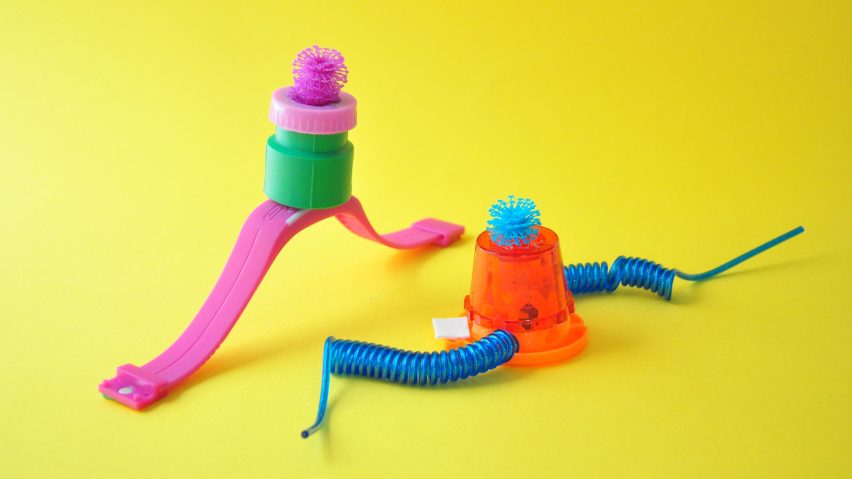
Lebanese students anticipate future human needs for Beirut Design Week exhibition
A receptacle for gifting your best DNA, a tech-disabling glove for punishing cybercriminals and a device that harvests edible fungus from your own body are among the concepts presented by students of five Lebanese universities for the Speculative Needs exhibition.
The exhibition is on as part of Beirut Design Week (BDW), which each year focuses on an area of design that has not been much explored in the local industry.
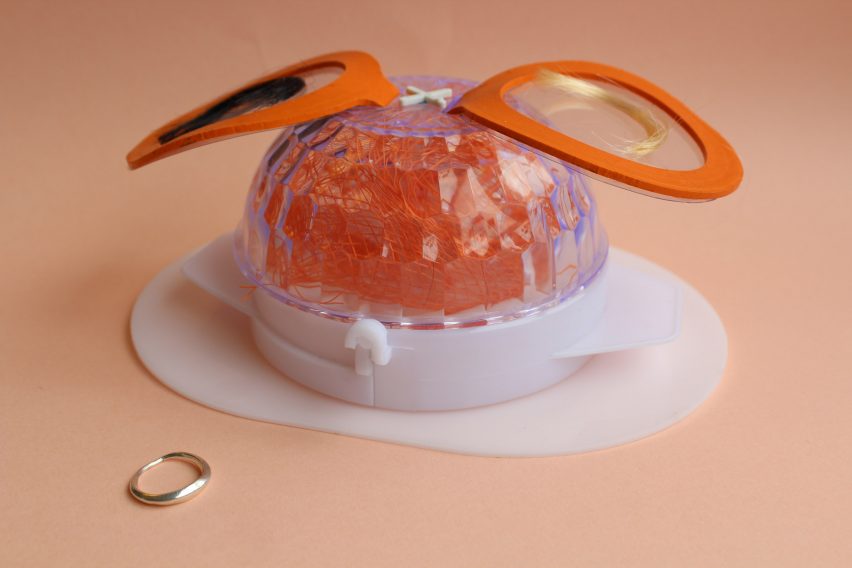
This year that focus is on speculative and critical design, and a key initiative of festival organisers from the Middle East and North Africa Design Research Center (MENA DRC) involved engaging students of five Beirut-based universities with those ideas.
Noting that not a single Lebanese university currently offers classes or lectures on the subject, the organisers ran a series of workshops on speculative and critical design. These asked the students to imagine products that humans might need in the future, based on their observations about technology, society and the environment today.
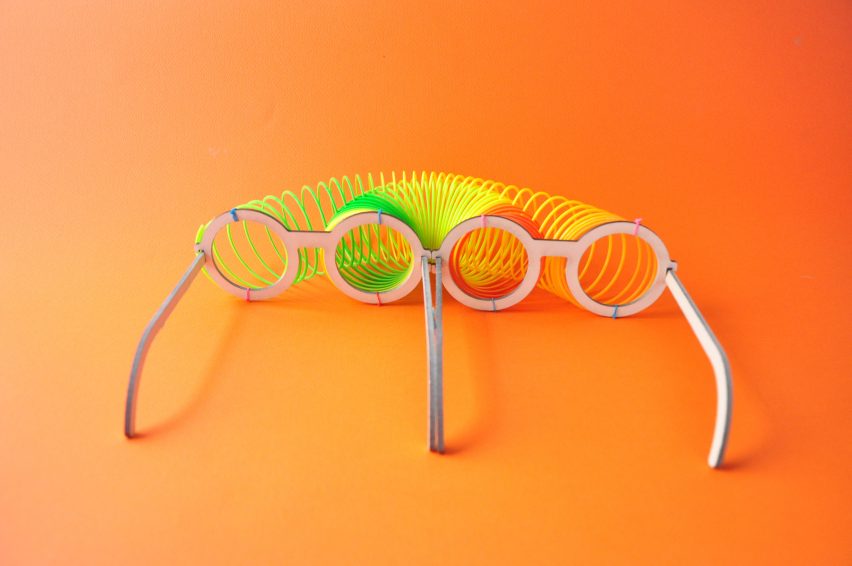
"We use Beirut Design Week as an opportunity to explore new forms of design that might not have been introduced to designers in the country, and we do that through talks, exhibitions, workshops and the annual conference," BDW creative director Doreen Toutikian told Dezeen.
"This year we aim to create awareness about critical and speculative design, which looks at design as a tool to question the discipline itself beyond the market-oriented norms."
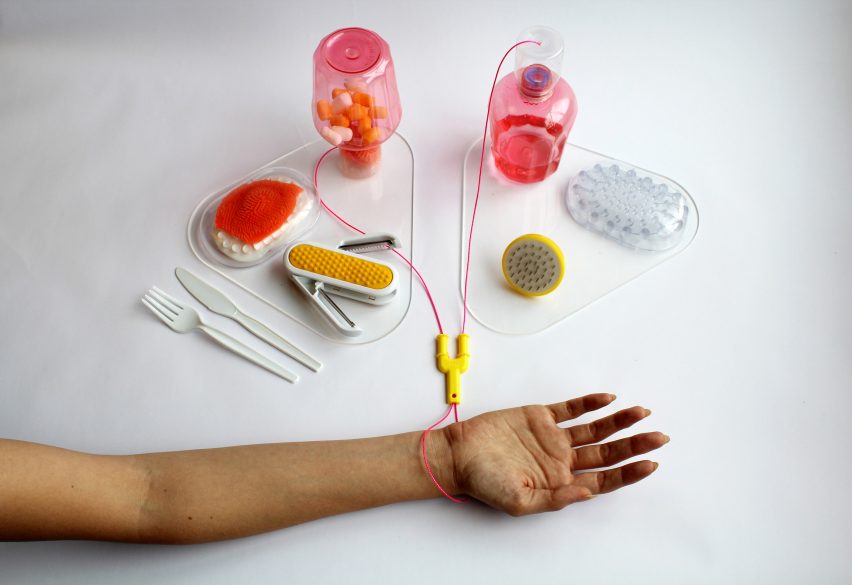
The students responded to themes like digital social rituals, cyberprisons and cybercrime, technospiritualism, and recreating nostalgia.
Driven by budget constraints, the workshop organisers sourced project materials from dollar stores, which is why the works share a colourful, toy-like aesthetic.
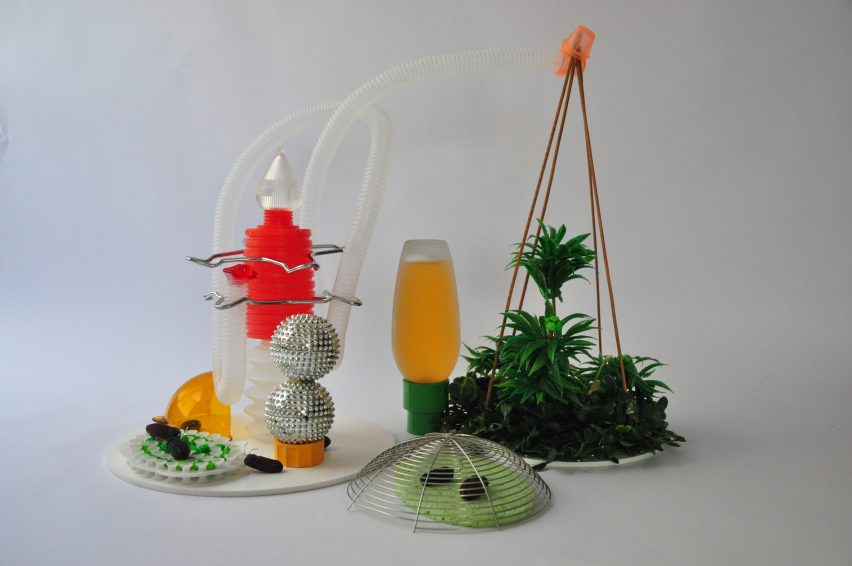
MENA DRC is a non-profit organisation, while several of the five universities involved – the Lebanese International University, the Lebanese University, the Lebanese American University, the Académie Libanaise des Beaux-Arts and the American University of Science and Technology – are public institutions with limited access to prototyping tools.
"The universities were not equipped with facilities that allow them to 3D print, laser cut, work with metal or plastic in order to create objects," Speculative Needs curator Tatiana Toutikian told Dezeen. "So we had to find a way in order to get interesting materials to them cheaply. We scouted the dollar stores in the city, looking for objects that can be broken apart and reused."
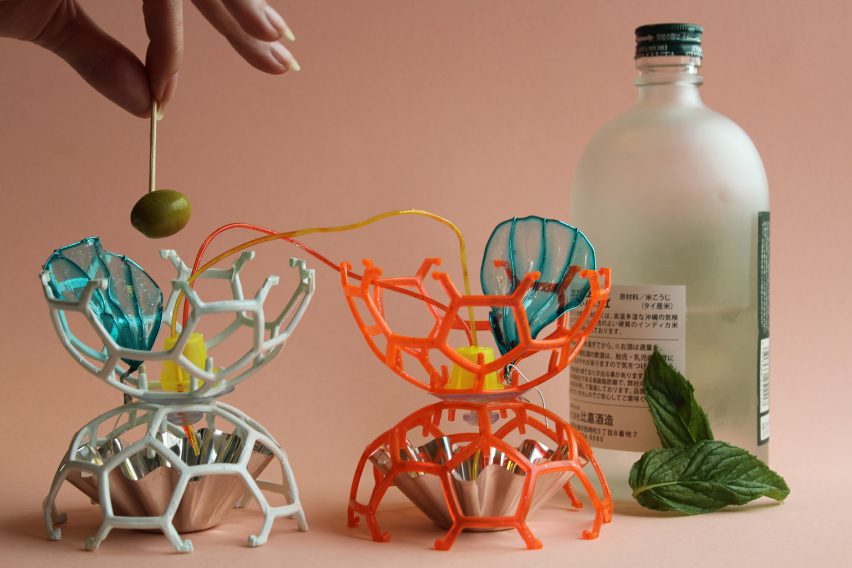
The curator said that while the choice of materials may have come about from constraints, there were surprising benefits to using them.
"These dollar store items look cheap on the shelf and are inexpensive, but remarkably each one carries an element of future in them," she said. "Circles with dials, orange bifurcated shapes, this aesthetic was dominating on the racks of these trinket places."
"Also, most of the objects were created in China, and the mass production meant that they had the same moulds, so most parts seemed to seamlessly fit together, which was a big plus for the project."
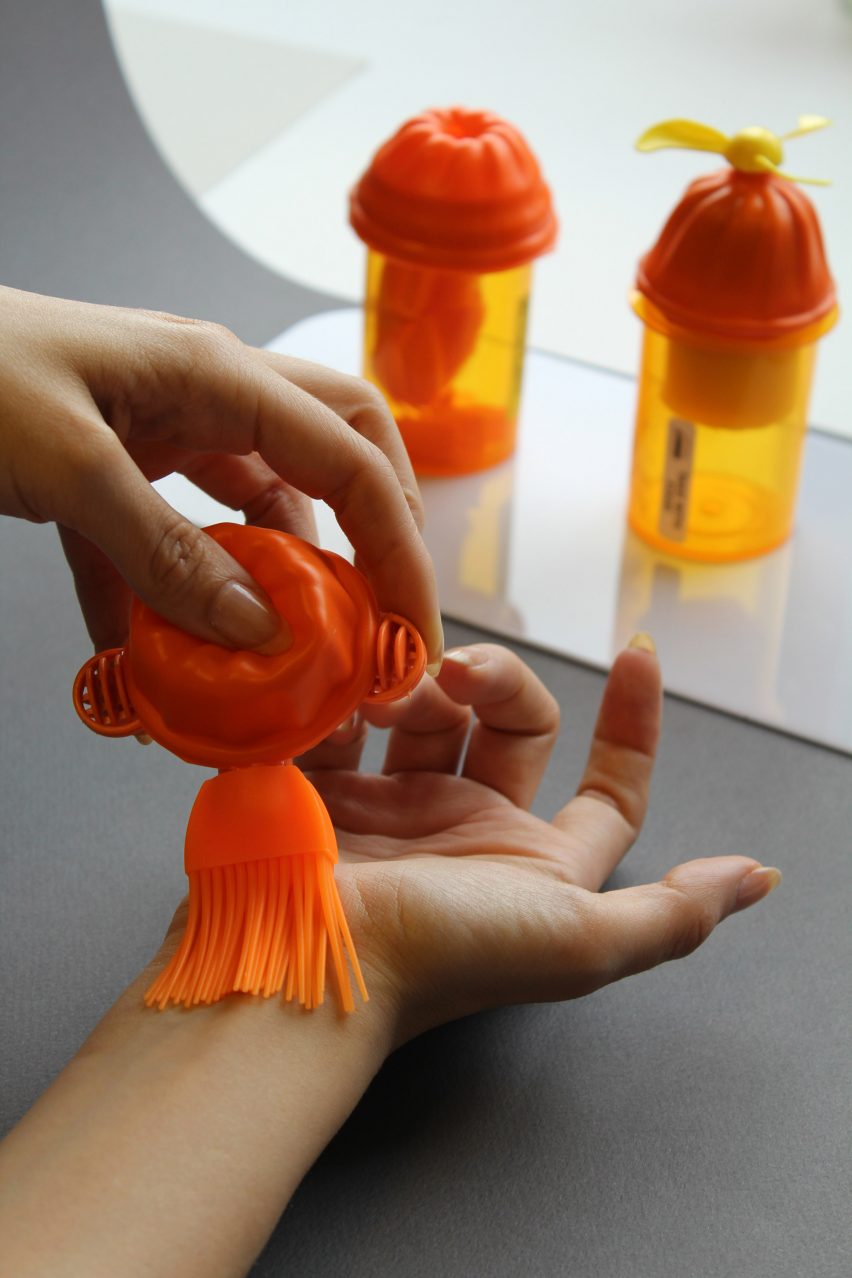
More than 100 students took part in the workshops, producing over 40 projects. A selection of these are on display at the KED exhibition space in Karantina until 26 May for Beirut Design Week.
A number of the projects envisage future food scarcity. SuperRoach is a small home laboratory for genetically modifying and training cockroaches to scavenge food, while Eat Yourself is a kit for harvesting edible fungus from your own body.
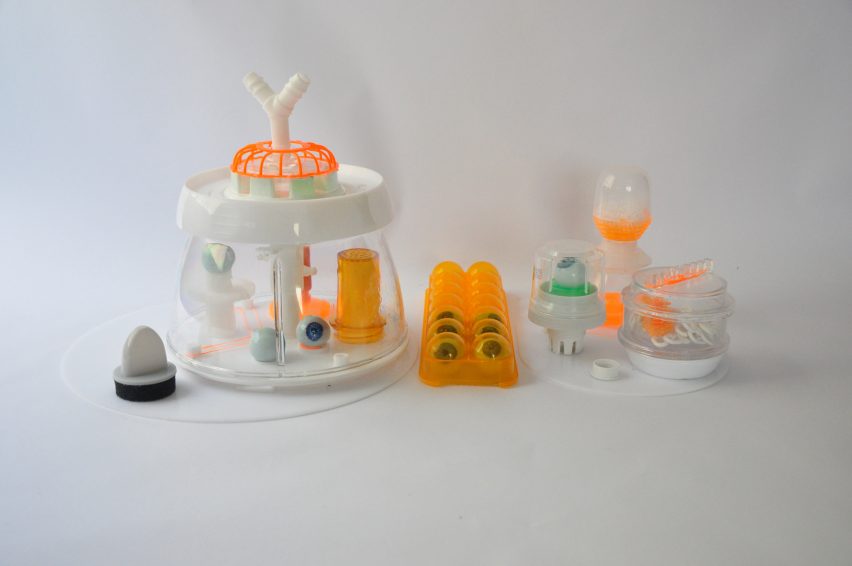
The ability to access and manipulate our own DNA is another recurring theme, with DNA Weddings offering a vessel for gifting your best genes to newlyweds to use on their future offspring. The Rejuvenation Gun is a foetus incubator that harvests stem cells and infuses them directly into your withering body, while the Eye Kit would allow users to introduce altered genes into their bodies via their eyeballs.
Responding to new problems created by technology is Cyberprison, a wearable device designed to punish criminals by blocking their access to electronics, and Confused Predictions, another wearable that attempts to add some surprises to your algorithmically generated playlist by adding data from other people around you.
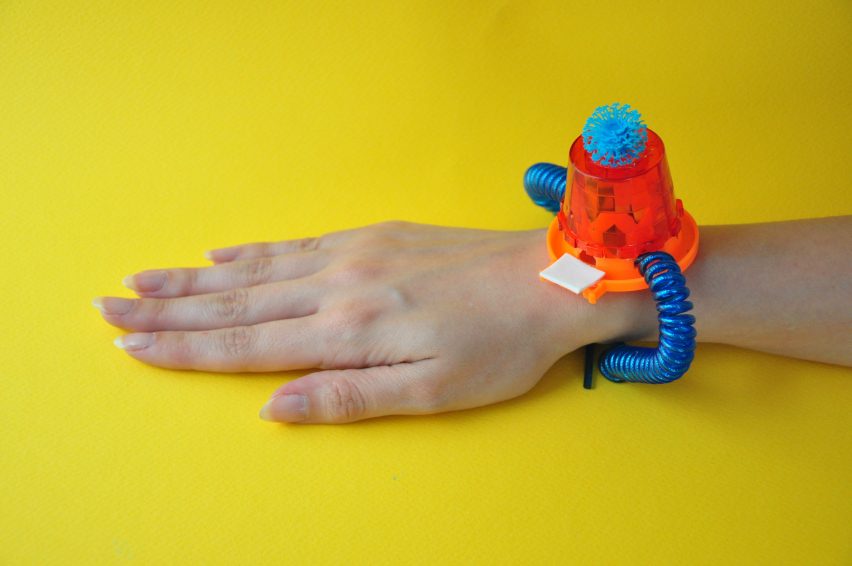
Other objects address relationship challenges, like Sensual Robots, a set of sex toys that focus on sensual touch rather than instant gratification, and Hormone Martini, a cocktail-making kit that builds empathy between people by letting them mix their hormones into drinks.
Tatiana Toutikian said the workshops had made students think critically about the products they would one day be pushing into the world, and to discover another side of design – one that can be used to point out problems in society.
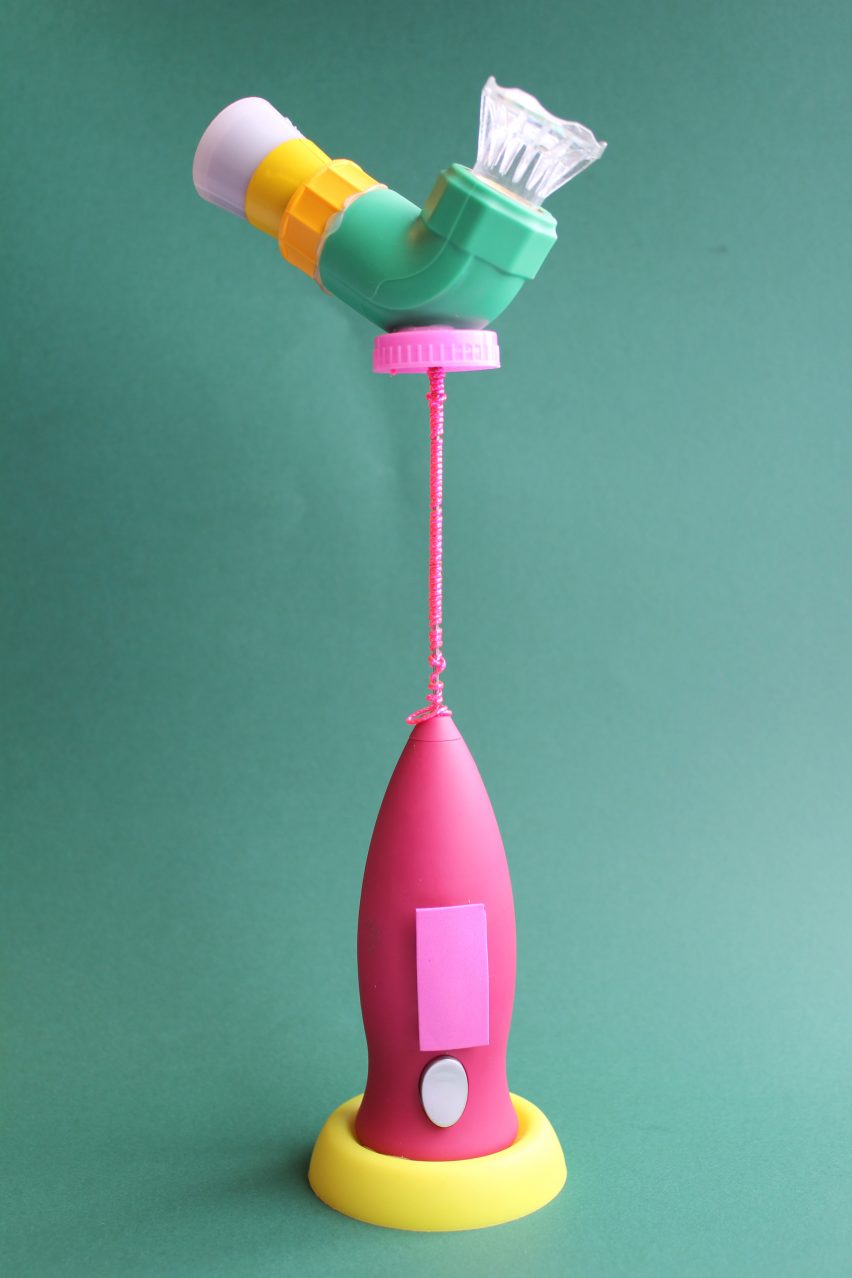
"Students were taught to think less as consumers, and to question the underlying practice," she said. "They looked at a side of design that is not addressed because the industry cannot cash in on it."
"Death, suicide by electronics, black markets, bullying over social media are things that never appear in Apple Ads or Amazon Now products."
Beirut Design Week is on in the Lebanese capital from 19 to 26 May. This is the event's sixth consecutive year.